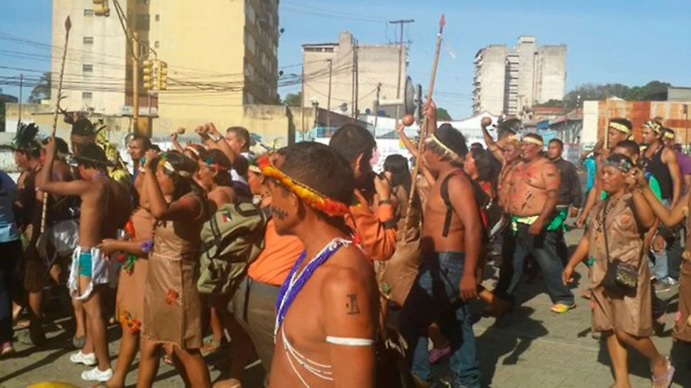Ukrainian anarchists targeted by security police
The Ukraine Security Service (SBU) appears to be targeting the country's anarchist youth following an attack on a leader of the neo-fascist Right Sector. In December, the SBU carried out searches at the homes of seven anarchists in the cities of Kiev, Brovary, Dnipro and Lviv. SBU officers reportedly forced two anarchists to sign a "cooperation agreement," and one of the activists had her passport confiscated. Those targeted were members of the groups Black Banner and Ecological Initiative. The searches were carried out as part of an investigation into an attack on a Right Sector militant Dmytro "Verbych" Ivashchenko, a veteran of the war in Ukraine's eastern Donbass region. (Photo: protest outside SBU office in Kiev, via Zaborona)



